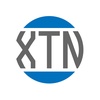Clinical Decision Support Systems (CDSS) stand as a testament to the remarkable evolution of technology in the healthcare sector. These advanced platforms, at their core, are designed to integrate a wealth of medical knowledge with specific patient information, thereby offering healthcare professionals a sophisticated layer of support in their decision-making processes. Initially, CDSS were simple alert systems, providing basic notifications about potential drug interactions or specific patient contraindications.
However, as technological advancements continued to permeate the healthcare industry, these systems evolved significantly. They began to incorporate more complex functionalities, transitioning from offering mere alerts to providing comprehensive, data-driven insights that have reshaped the way healthcare professionals approach patient care.
The true paradigm shift in the functionality of CDSS came with the integration of Artificial Intelligence (AI). This integration marked a leap from linear, rule-based processes to dynamic, AI-driven systems capable of predictive analytics, risk assessment, and personalized treatment recommendations. AI's ability to analyze vast quantities of data and learn from patterns has not only enhanced the precision of CDSS but also significantly broadened their scope and application in clinical settings.
As a result, today's CDSS are not just tools for alerting healthcare providers about potential issues; they are integral components of the healthcare delivery system, playing a crucial role in shaping treatment plans, optimizing patient outcomes, and driving the future of personalized medicine. This evolution of CDSS from basic alert systems to complex, AI-powered platforms mirrors the overarching progression of healthcare technology, highlighting the continuous advancement and increasing sophistication of tools at the disposal of healthcare professionals.
From Alerts to Analysis: The Early Days of CDSS
In the early days, CDSS were simple rule-based systems that generated alerts for drug interactions or contraindications. These systems relied heavily on if-then rules crafted by human experts. While helpful, they often resulted in alert fatigue due to the high volume of non-critical notifications.
Integrating Evidence-Based Guidelines
As the field matured, CDSS began to incorporate evidence-based guidelines into their frameworks. This allowed for more nuanced support, such as recommending diagnostic tests based on the latest research. However, these systems were still limited by the static nature of rule sets, which required manual updates.
The Role of Electronic Health Records
The integration of Electronic Health Records (EHR) marked a significant leap forward. EHRs provided a rich dataset for CDSS to leverage, enabling them to offer more personalized recommendations. But despite the advancements, these systems were still largely reactive, relying on inputted data to trigger alerts.
The Advent of Machine Learning
Machine learning introduced predictive capabilities to CDSS. These systems could now analyze historical data to identify patterns and predict outcomes, such as the likelihood of a patient readmission. This not only improved the relevance of alerts but also allowed for preemptive healthcare interventions.
Big Data and Beyond: The Emergence of AI in CDSS
The explosion of big data and advancements in AI have transformed CDSS. AI algorithms can now process vast amounts of data in real-time, offering insights that were previously inconceivable. These AI-driven CDSS can continuously learn and adapt, providing increasingly sophisticated support to healthcare providers.
The Current Landscape: AI-Driven CDSS in Practice
Today's AI-driven CDSS are more than alert systems; they are comprehensive support tools that offer diagnostic assistance, risk assessment, and even therapeutic recommendations. They can analyze medical images, interpret laboratory results, and suggest treatment plans tailored to individual patient profiles.
Ethical Considerations and the Future
With the power of AI, CDSS are set to become even more integral to healthcare delivery. However, this raises ethical considerations, such as data privacy and the need for transparency in AI decision-making processes. The future of CDSS will likely focus on addressing these issues while continuing to harness AI's potential to improve patient outcomes.
Conclusion
In the landscape of healthcare technology, where the quest for efficiency often overshadows the human element, Holon Solutions emerges as a beacon of balance and innovation. With its roots firmly planted in the concept of a "holon," symbolizing both independence and interdependence, Holon Solutions is not just a company; it's a paradigm shift in healthcare technology. Their journey aligns perfectly with the evolution of Clinical Decision Support Systems (CDSS), from rudimentary alerts to sophisticated AI-driven tools, as they pioneer an approach that revives the crucial human element in healthcare services.
At the heart of Holon's philosophy is the recognition of healthcare professionals as more than mere users of technology. They are vital components of the healthcare system, whose well-being and efficiency directly impact patient care. Holon's advanced platform transcends traditional product offerings by creating a space that simplifies complex healthcare processes. This is achieved through their proprietary sensor technology, which aggregates patient data from diverse sources and integrates it seamlessly into individualized clinical workflows. This strategic automation not only conserves precious time for medical professionals but also combats the prevalent issue of burnout, enabling them to refocus on what truly matters: delivering superior patient care.
In a competitive landscape where healthcare providers often grapple with overwhelming administrative tasks, Holon distinguishes itself through smart technology and intuitive design. By introducing customized tools, services, and insights, Holon not only demonstrates tangible business returns but also profoundly impacts human interactions and outcomes. Their dual focus on business efficiency and human-centric care is a testament to their innovative approach.
The Holon Community, a cornerstone of their methodology, optimizes healthcare processes by streamlining the delivery of patient data from numerous sources to any point of care. This approach integrates effortlessly with existing infrastructures and procedures, enhancing professional fulfillment and dedicating more time to patient-centric care. In an era where CDSS are evolving towards AI-driven platforms, Holon’s approach to data integration and workflow enhancement is particularly relevant.
Innovation at Holon is not just a buzzword; it is a lived reality, deeply embedded in the ethos of the company. Their Innovation Lab is a testament to this, where teams are empowered to explore the realms of technology and design with a focus on humanizing healthcare services. Guided by principles of bold thinking, simplification, customer empathy, agile responses in a SaaS environment, and humanizing every exchange, Holon’s Innovation Lab accelerates the introduction of groundbreaking solutions. This aligns seamlessly with the progression of CDSS, underscoring the importance of intuitive, adaptive, and human-focused technology in healthcare.
Holon’s relentless pursuit of innovating healthcare experiences addresses critical issues such as professional burnout, administrative strain, and enriching patient care. Their steadfast vision of bringing a more humane touch to healthcare innovation echoes the transformative journey of CDSS. From simple alert systems to AI-driven platforms, the focus has shifted towards enhancing the human connection in healthcare, a vision that Holon embodies and champions. As CDSS continue to evolve, integrating sophisticated AI and machine learning capabilities, companies like Holon Solutions are poised to play a pivotal role in shaping a future where technology and human expertise coalesce to offer the best possible patient care.


No comments yet